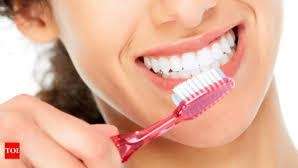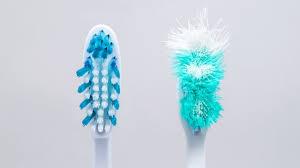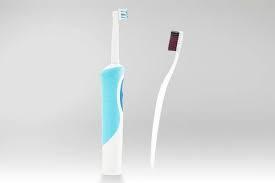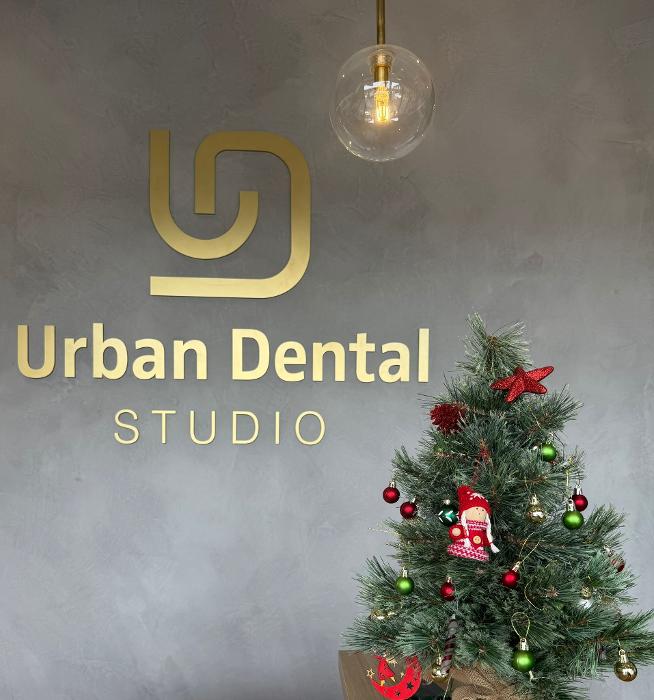
When it comes to oral health, brushing your teeth is one of the most essential habits to maintain. But did you know that the way you brush can have a significant impact on the condition of your teeth and gums? One common issue that can arise from improper brushing techniques is toothbrush abrasion.
What is toothbrush abrasion?
Toothbrush abrasion refers to the wear and tear on tooth enamel and gum tissue caused by brushing too aggressively or using an abrasive toothbrush. Over time, this can lead to visible damage to the teeth and gums, contributing to tooth sensitivity, gum recession, and even cavities in extreme cases.
Causes of toothbrush abrasion
Several factors contribute to toothbrush abrasion:
- Hard Bristles: Toothbrushes with hard or medium bristles can be too abrasive on the enamel, especially if combined with aggressive brushing.
- Brushing Too Hard: Applying excessive pressure while brushing your teeth may seem like an effective way to remove plaque, but it can actually damage your teeth and gums in the long run.
- Improper Brushing Technique: Brushing back and forth in a sawing motion, rather than using gentle, circular movements, can create uneven wear on tooth surfaces and gums.
- Old or Worn-out Toothbrushes: Using a toothbrush that’s been in use for too long can make it less effective in cleaning and may lead to excessive force being applied to certain areas of the mouth.
Acidic Diet: A diet high in acidic foods and drinks (such as citrus fruits, sodas, or coffee) can weaken the enamel, making it more vulnerable to abrasion.
Symptoms of toothbrush abrasion
The effects of toothbrush abrasion can range from mild to severe. Here are some symptoms to watch out for:
- Tooth Sensitivity: If your teeth become more sensitive to hot, cold, or sweet foods and beverages, abrasion may be to blame.
- Visible Enamel Wear: Over time, you may notice your teeth appear slightly discoloured or worn down, especially along the gum line.
- Gum Recession: Abrasive brushing techniques can contribute to the recession of the gums, which can expose more of the tooth’s root, leading to increased sensitivity and risk of decay.
- Yellowing of Teeth: When enamel wears away, the underlying dentin (which is naturally yellow) can become exposed, leading to a yellowish appearance.
How to prevent toothbrush abrasion
The good news is that toothbrush abrasion is largely preventable. Here are some tips to protect your teeth and gums:
- Use a Soft-Bristled Toothbrush: Choose a toothbrush with soft bristles, as they are gentle on the enamel while still effective in removing plaque and food particles.

- Brush Gently: Avoid pressing too hard while brushing. The goal is to clean your teeth, not to scrub them. Use gentle, circular motions rather than back-and-forth strokes.
- Choose the Right Toothpaste: Avoid using overly abrasive toothpaste, which can further contribute to enamel wear. Look for toothpaste with fluoride that is designed for sensitive teeth if you notice any discomfort. Avoid toothpaste designed to ‘whiten’ these can be more abrasive.
- Consider Electric Toothbrushes: Many electric toothbrushes come with pressure sensors that alert you if you're brushing too hard. These can help reduce the risk of abrasion.
- Avoid Acidic Foods Before Brushing: If you’ve recently eaten something acidic, wait at least 30 minutes before brushing. Acidic foods can soften enamel, making it more susceptible to wear from brushing. Drinking plain water after having acidic food will reduce acid attack.
- Professional Advice: If you're concerned about brushing techniques or tooth wear, consider visiting your dentist or hygienist here at Urban Dental Studio!
Treatment for Toothbrush Abrasion
If you’re already experiencing signs of toothbrush abrasion, don’t worry—there are solutions. Your dentist can assess the level of damage and recommend treatments such as:
- Fluoride Treatments: These can help remineralise enamel and reduce sensitivity.
- Desensitizing Toothpaste: Special toothpastes can help alleviate sensitivity caused by enamel loss.
- Gum Grafting: If your gums have receded significantly, your dentist may recommend a gum graft to restore gum tissue.
- Fillings or Bonding: In cases of severe abrasion, your dentist might suggest fillings or bonding to restore the affected tooth surface.
Treatment for toothbrush abrasion
Toothbrush abrasion is a common but preventable issue that can significantly affect the health of your teeth and gums. By using the correct brushing techniques, choosing the right tools, and practicing good oral hygiene habits, you can protect your teeth from unnecessary wear and enjoy a healthy smile for years to come.
Remember, brushing gently and regularly, along with professional dental check-ups with our team at Urban Dental Studio, can go a long way in maintaining optimal oral health.

